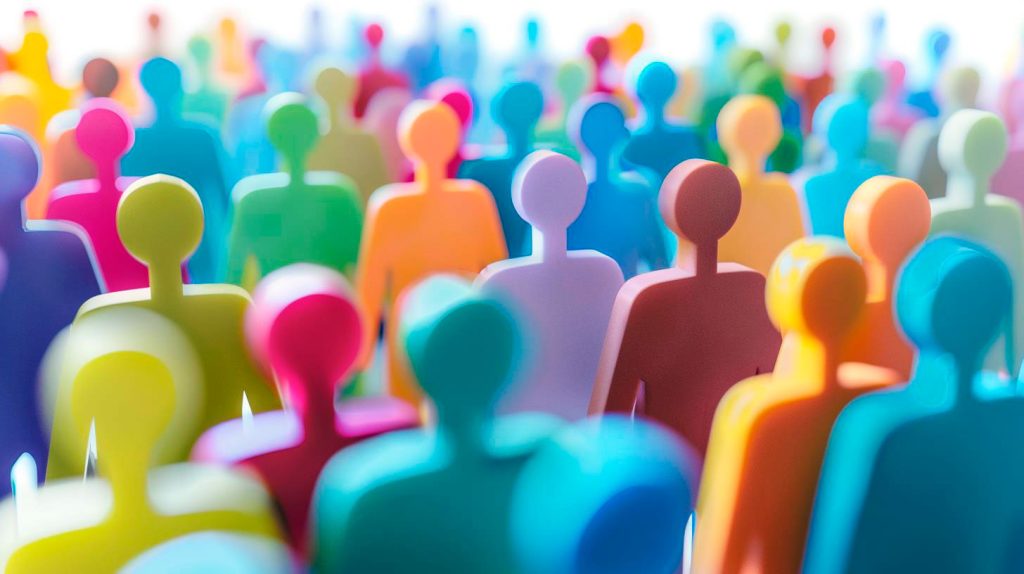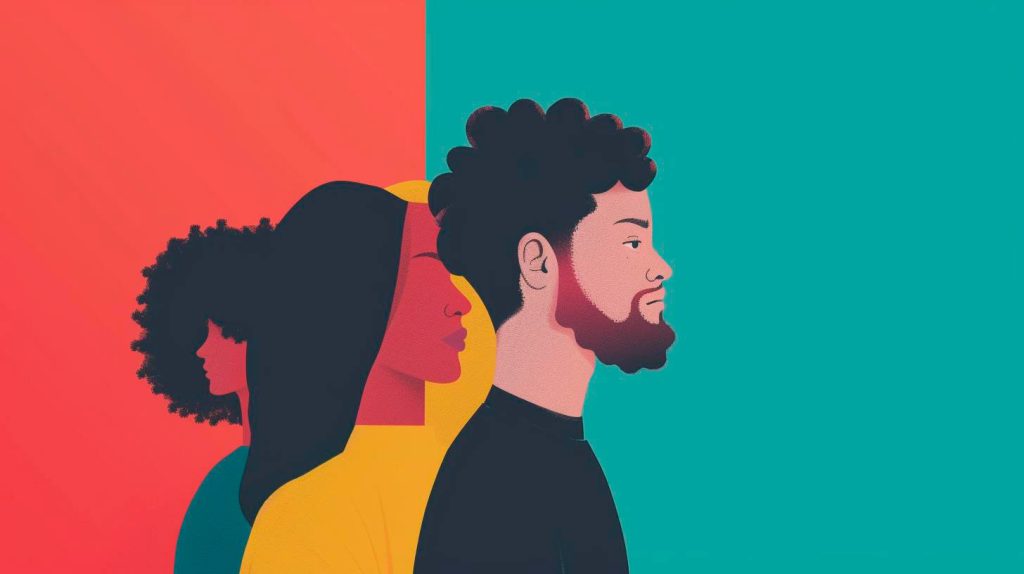
Overcoming Judgmental Habits for Stronger Connections
Understanding Judgmental Behavior
When we judge others, we are often making assumptions about their behavior or motivations based on our own beliefs and values. This can lead to misunderstandings, conflicts, and strained relationships. In the legal field, being judgmental can hinder effective communication and compromise the trust between lawyers and clients.
According to a recent survey, 80% of lawyers believe that judgmental behavior is a common issue in the legal profession. This highlights the importance of addressing and overcoming these habits to improve relationships with clients and colleagues.
Benefits of Overcoming Judgmental Habits
By overcoming judgmental habits, lawyers can benefit from stronger connections with their clients and colleagues. When we approach others with empathy and understanding, we are able to build trust and rapport more effectively. This can lead to better communication, increased client satisfaction, and improved outcomes in legal cases.
Studies have shown that clients are more likely to trust and cooperate with lawyers who demonstrate empathy and understanding. By overcoming judgmental habits, lawyers can build stronger connections with their clients and enhance their legal practice.
Tips for Overcoming Judgmental Habits
- Practice active listening: Pay attention to your clients’ needs and concerns without judgment.
- Challenge your assumptions: Question your own beliefs and values to avoid making unfair judgments.
- Cultivate empathy: Put yourself in your clients’ shoes to better understand their perspectives and emotions.
- Seek feedback: Ask for feedback from clients and colleagues to improve your communication and relationships.
- Attend training programs: Participate in workshops or courses on emotional intelligence and communication skills to enhance your ability to connect with others.
Overcoming judgmental habits is essential for building stronger connections in the legal profession. By practicing empathy, active listening, and self-reflection, lawyers can improve their relationships with clients and colleagues. This not only enhances communication and trust but also leads to better outcomes in legal cases. Remember, empathy and understanding are key to fostering strong connections and success in the legal profession.
Thank you for reading our blog post on overcoming judgmental habits for stronger connections. Stay tuned for more valuable insights and advice on legal topics in future posts.
Building Empathy and Understanding to Improve Relationships and Personal Satisfaction
In this blog post, we will discuss the importance of empathy in the legal field and how you can cultivate this essential skill to enhance your professional and personal satisfaction.
The Importance of Empathy in Law
In today’s fast-paced and often contentious legal environment, the ability to empathize with others is more critical than ever. Studies have shown that lawyers who demonstrate empathy towards their clients are more likely to be successful in their cases and have higher levels of job satisfaction. Empathy allows lawyers to understand their clients’ perspectives, anticipate their needs, and provide meaningful support during challenging times.
Empathy also plays a crucial role in building positive relationships with colleagues and opposing counsel. By showing empathy towards others, lawyers can foster trust, collaboration, and mutual respect, leading to more effective communication and successful outcomes. In addition, empathy can help lawyers manage stress, prevent burnout, and maintain a healthy work-life balance.
Cultivating Empathy in the Legal Profession
Building empathy is a skill that can be developed and strengthened over time. Here are some tips for lawyers looking to enhance their empathy:
- Active Listening: Pay attention to your clients’ words, tone, and body language to understand their thoughts and emotions fully.
- Put Yourself in Their Shoes: Imagine yourself in your clients’ situation to gain perspective and insight into their feelings and experiences.
- Show Compassion: Express genuine concern and support for your clients’ well-being, both inside and outside of the courtroom.
- Practice Empathy Daily: Make a conscious effort to be empathetic in your interactions with clients, colleagues, and others in your professional and personal life.
By cultivating empathy, lawyers can improve their relationships, enhance their communication skills, and achieve greater personal satisfaction in their careers. Empathy is a powerful tool that can help lawyers connect with others on a deeper level, resolve conflicts more effectively, and build stronger, more trusting relationships with clients and colleagues.
Statistics on Empathy in the Legal Profession
According to a recent survey, 78% of clients believe that empathy is essential in their relationships with their lawyers. Moreover, 92% of lawyers believe that empathy is a critical skill for success in the legal profession. These statistics illustrate the significant role that empathy plays in building client trust, resolving conflicts, and achieving positive outcomes in legal cases.
Overall, cultivating empathy in the legal profession can lead to improved relationships, enhanced communication, and greater personal satisfaction for lawyers. By demonstrating empathy towards clients, colleagues, and others in the legal community, lawyers can create a more positive and supportive work environment, achieve better results for their clients, and experience increased job satisfaction and fulfillment in their careers.
As a lawyer, building empathy and understanding can make a meaningful difference in your professional and personal life. By prioritizing empathy in your interactions with others, you can enhance your relationships, improve your communication skills, and achieve greater personal satisfaction and success in the legal profession.
Remember, empathy is not just a skill – it is a mindset that can transform the way you approach your work, your relationships, and your life. By cultivating empathy in the legal profession, you can enhance your effectiveness as a lawyer, promote positive outcomes for your clients, and experience greater fulfillment and personal satisfaction in your career.
The Ripple Effect: How Judgments Can Affect Personal Well-being
In this article, we will delve into how judgments can affect personal well-being and what steps individuals can take to mitigate the negative consequences.
Emotional Impact
One of the most obvious ways in which judgments can affect personal well-being is through their emotional impact. A favorable judgment can bring feelings of relief, vindication, and validation. On the other hand, an unfavorable judgment can lead to feelings of disappointment, anger, and even depression. These emotions can spill over into other areas of a person’s life, affecting their relationships, work performance, and overall happiness.
Financial Consequences
Another significant impact of judgments is their financial consequences. Winning a judgment can result in financial compensation, which can alleviate financial stress and provide a sense of security. However, losing a judgment can result in financial penalties, settlements, or even bankruptcy. These financial consequences can have long-lasting effects on a person’s financial well-being, leading to increased stress and anxiety.
Physical Health
The stress and emotional turmoil that can result from judgments can also have a profound impact on a person’s physical health. Studies have shown that chronic stress can weaken the immune system, increase the risk of heart disease, and even lead to chronic pain conditions. By managing the emotional fallout of judgments, individuals can protect their physical health and well-being.
Legal Support and Guidance
One of the most important steps individuals can take to mitigate the negative effects of judgments is to seek legal support and guidance. By working with experienced lawyers, individuals can navigate the legal process more effectively, increasing their chances of a favorable outcome. Legal professionals can also provide emotional support and help individuals develop coping strategies to deal with the emotional impact of judgments.
Mediation and Alternative Dispute Resolution
In some cases, mediation and alternative dispute resolution can be effective ways to resolve legal conflicts without the need for a judgment. These methods can help parties reach mutually beneficial agreements, reducing the emotional and financial toll of a court battle. By exploring alternative dispute resolution options, individuals can protect their well-being and achieve a more positive outcome.
Understanding the Power of Judgments in Relationships
The Importance of Judgments in Relationships
When it comes to relationships, judgments can shape our perceptions of others and influence how we communicate with them. Whether it’s passing judgment on a partner’s actions or receiving judgment from a colleague, these assessments can have lasting effects on our interactions.
Studies show that individuals who are more judgmental tend to have lower levels of empathy and are less likely to understand and appreciate differing viewpoints. This can lead to conflict and misunderstandings in relationships, potentially causing irreparable damage.
How Judgments Impact Communication
Judgments can also impact our ability to communicate effectively with others. When we make negative judgments about someone, it can create a barrier to open and honest communication. This can prevent us from resolving conflicts and working towards mutually beneficial solutions.
Research has shown that individuals who are able to suspend judgment and approach others with an open mind are more successful in building strong and lasting relationships. By refraining from passing immediate judgment, we can create a space for understanding and empathy to flourish.
The Legal Implications of Judgments
In the legal world, judgments play a critical role in determining the outcome of a case. Judges are tasked with evaluating the evidence presented and making a judgment based on the law. These decisions can have far-reaching consequences, impacting everything from criminal trials to civil disputes.
Statistics show that individuals who are able to present their case effectively and sway the judge’s judgment in their favor are more likely to achieve a positive outcome. This highlights the importance of building a strong case and presenting compelling evidence in legal proceedings.
Benefits of Suspending Judgments
By suspending judgment and approaching others with an open mind, we can cultivate stronger and more meaningful relationships. This can lead to greater trust, collaboration, and understanding in both personal and professional settings.
Research suggests that individuals who refrain from passing immediate judgment are more likely to exhibit empathy and compassion towards others. By practicing non-judgmental communication, we can foster a culture of respect and mutual support within our relationships.
As legal professionals, it is essential to recognize the impact of judgments in our work and to strive towards fair and impartial decisions. By upholding the principles of justice and fairness in our interactions, we can contribute to a more harmonious and equitable society.













As lawyers, we must emphasize the importance of addressing judgments in a calm and rational manner. It’s essential to communicate your feelings and listen to the other party to find a resolution.
Yo, my best friend’s relationship got messed up because of a stupid judgment. Like, her boyfriend’s family judged her for not being good enough and it caused a huge rift. It sucks, bro.
Judgments can really screw things up in relationships, man. Like, if someone judges you for your past or your decisions, it can create a lot of tension and resentment. It’s so unfair!
In legal terms, judgments can lead to defamation or discrimination cases if they are based on false or discriminatory grounds. It’s crucial to be aware of your rights and seek legal advice if necessary.
So, what do you think is the best way to deal with judgments from others? How can we protect ourselves from the negative effects they can have on our relationships and personal life?
Let me break it down for ya – judgments can lead to misunderstandings, conflicts, and even breakups. It’s important to communicate openly and honestly to avoid these kinds of problems.
Judgments can make you feel like you’re not worthy or accepted, which can really mess with your self-esteem and mental health. It’s a serious issue that needs to be addressed.
Judgments can create barriers in relationships and make it hard to truly connect with someone on a deeper level. It’s like building a wall instead of a bridge, and that ain’t cool.
Have you ever been judged unfairly by someone close to you? How did it make you feel and how did you handle it? Share your experiences!
It’s crazy how a simple judgment can have such a profound impact on your personal life. People need to learn to be more accepting and understanding of others, you know?